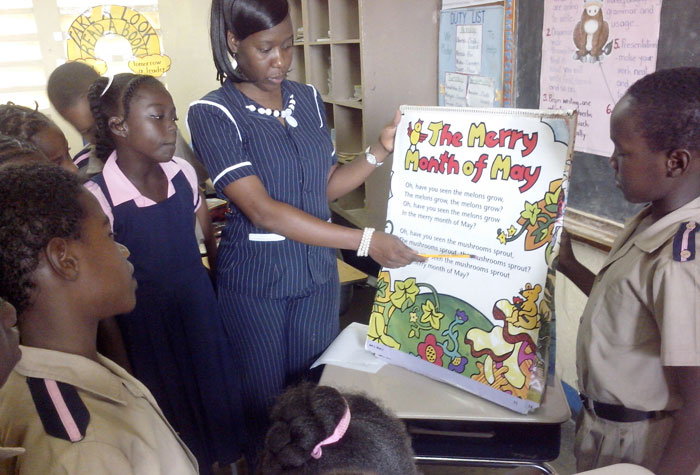Schoolfield Primary Making Major Strides in Literacy
By: , June 30, 2015The Key Point:
The Facts
- The school has received special commendation from Minister of Education, Hon. Rev. Ronald Thwaites, having moved from an average of 31 per cent literacy to 78 per cent between 2013 and 2015.
- The teachers at the institutions have been able to transform underachieving students into high achievers and have helped high achievers to maintain good grades.
The Full Story
Schoolfield Primary and Infant School in St. Elizabeth has been making major strides in improving literacy among the students.
The school has received special commendation from Minister of Education, Hon. Rev. Ronald Thwaites, having moved from an average of 31 per cent literacy to 78 per cent between 2013 and 2015.
The teachers at the institutions have been able to transform underachieving students into high achievers and have helped high achievers to maintain good grades.
Principal of the institution, Prim Lewis, says the school’s success results from a mix of creativity, and some good old fashioned hard work.
She tells JIS News that through several initiatives, the children have many incentives to become strong readers.
“We have a competitive reading competition that we do, where we encourage children to read and once per month we offer incentives for the top readers… and we have a weekly top speller programme, which is geared at getting top candidates for the Spelling Bee programme,” Mrs. Lewis says.
With help from community businesses, the students receive gifts to help them stay motivated.
“We have two business places in Santa Cruz that provide us with tokens for our monthly reading programme and our top spellers programme. One of them is LT Stationery, and the other one is Andrew’s Data supply,” the Principal notes.
“So monthly, I get a little goodie bag from them with pencils, sharpeners, erasers, books, colouring books, reading books and so many other things to give to the children. And, we call them up, make the presentation, and take their pictures and make them feel good in front of everybody,” she adds.
Another key component of the school’s efforts has been strong parental involvement.
“In our kindergarten classes we give the children books to take home to read with their parents, where the parents need to sign off that they are reading with them. And, the kindergarten children keep that book until they are able to read it,” Mrs Lewis tells JIS News.
With the help of a literacy specialist from the Ministry of Education, the children are required to ‘drop’ everything and read.
“We have re-introduced the Drop Everything and Read (DEAR) programme that was introduced to us by the Ministry some time ago. We also have the Children’s Own in our school, which we also encourage the children to buy and the teachers give them activities from it,” Mrs. Lewis says.
“My Grade 6 teacher has informed me that reading has taken off, and she doesn’t know where I’m going to get tokens from…because her children are reading great guns,” she adds.
Grade Four teacher at the institution, Leonie McKenzie, says it has been a truly rewarding experience watching the children develop over the past two years.
She tells JIS News that the students are administered tests on a regular basis, so as to identify their strengths and weaknesses.
“Also, we use technology enhanced lessons to motivate the students and get them more interested. Personally I am excited, even though exhausted some of the times. I am happy for them because that is the overall aim, to see them go forward,” Miss McKenzie says.
With her students’ improved performance, Ms. McKenzie notes that getting the students to comply with other tasks, such as attending extra lessons, has also become easier.
“The children are excited, because they want to pass exams, nobody wants to repeat. I don’t have a major problem in getting them out earlier or keeping them in the afternoon,” the teacher says.
Jamaica is now 7.6 per cent away from achieving the target of 85 per cent of students in the grade four age cohort achieving mastery of literacy skills by 2015.




